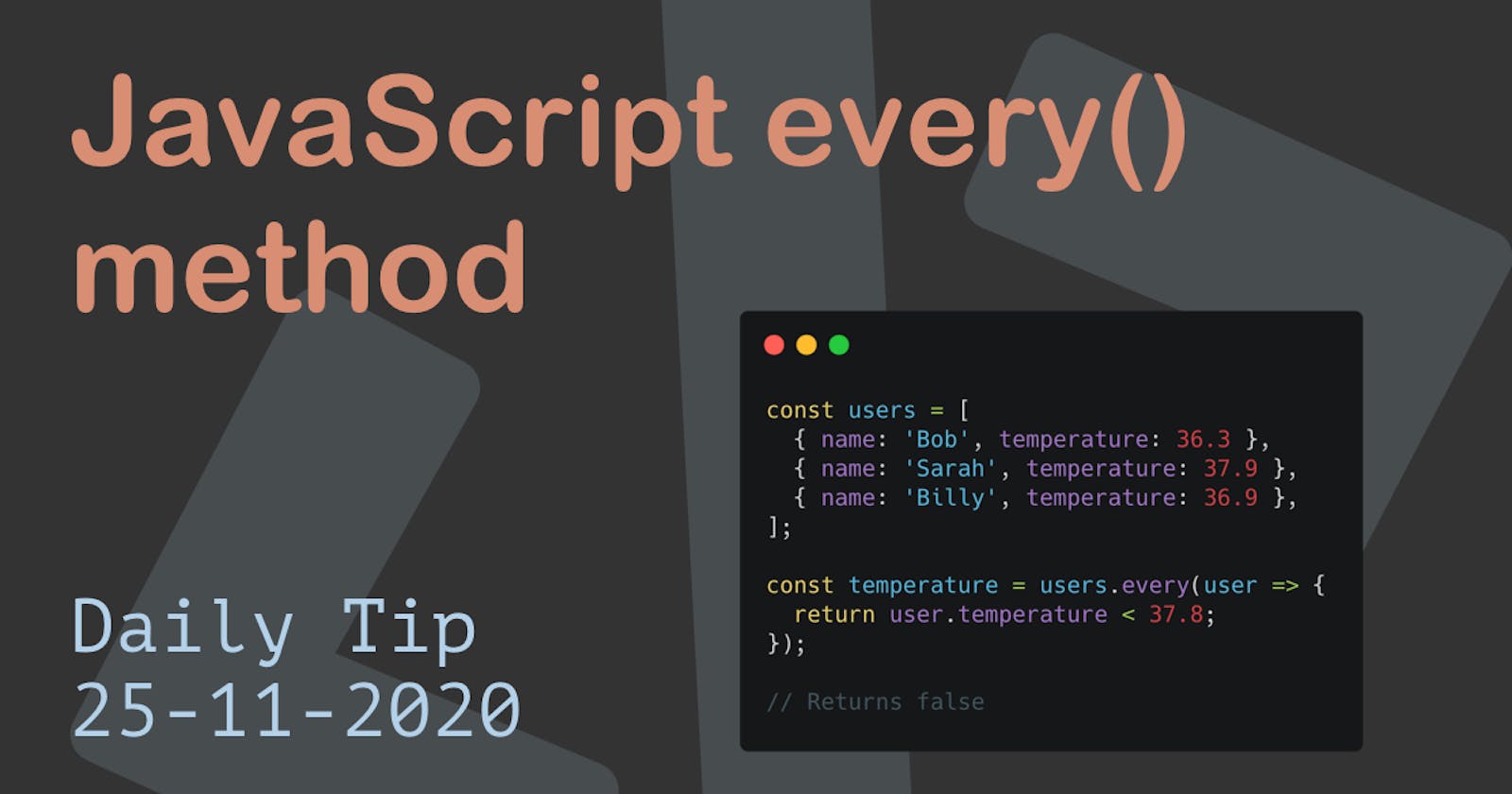Yesterday we had a look at the JavaScript some() method, and today we will focus on its brother every().
The main difference between the two:
some(): If at least one matchesevery(): All must match!
Both of them will give us a boolean value back.
Using the Javascript every() method
Let's start by creating an array of items.
const items = [
{ name: 'T-shirt plain', price: 9 },
{ name: 'T-shirt print', price: 20 },
{ name: 'Jeans', price: 30 },
{ name: 'Cap', price: 5 }
];
Let's say we want to check if all the items have a name.
const haveNames = items.every(item => {
return item.name;
});
// Returns true
If we now remove the name on our item, it will return false.
Let's take a more accurate example. We have a list of users, with temperatures, we want to see if everyone is under 37.8, else someone potentially has a risk of Covid-19.
const users = [
{ name: 'Bob', temperature: 36.3 },
{ name: 'Sarah', temperature: 37.9 },
{ name: 'Billy', temperature: 36.9 },
];
const temperature = users.every(user => {
return user.temperature < 37.8;
});
// Returns false
Whoops! Sarah has a high temperature, so now we get a false back, this means we need to do something.
I hope this shows how one line can beat an array to loop over people.
The syntax for every is as follows:
const new = original.every(function(value));
Inside our function, we can check on certain properties the value has.
And remember:

Thank you for reading, and let's connect!
Thank you for reading my blog. Feel free to subscribe to my email newsletter and connect on Facebook or Twitter

